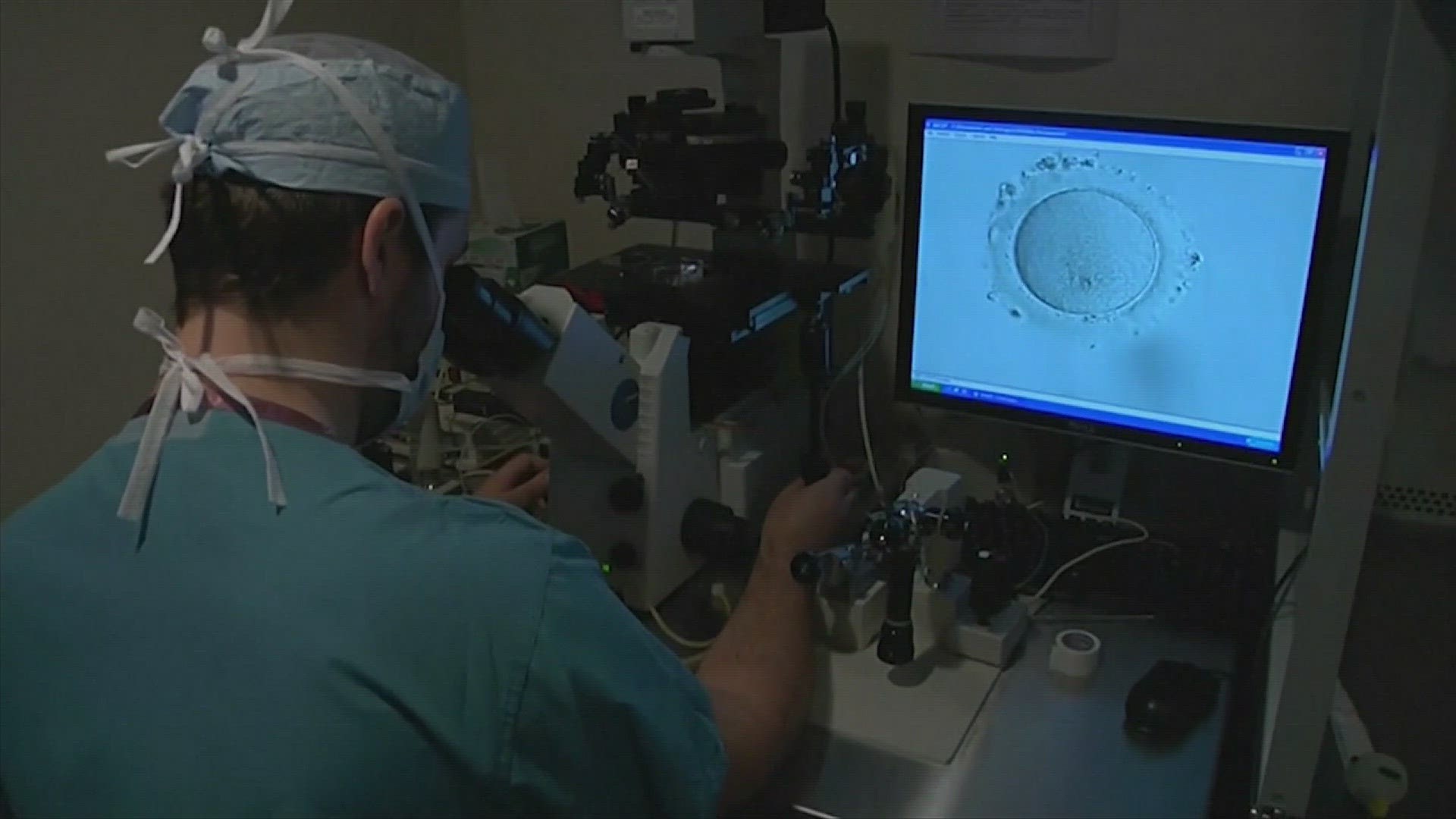MONTGOMERY, Ala. — Hannah Miles on Wednesday picked up a sign outside the Alabama Statehouse that reflected what she was feeling: "I Just Want To Be a Mom."
The 29-year-old from Birmingham had turned to in vitro fertilization after three years of infertility. She has one frozen embryo remaining and was scheduled to have it transferred next month in the hopes of having her first child. But whether that transfer can happen now is in doubt as fertility clinics paused some services in the wake of a state court ruling related to whether embryos are children under a state law.
Carrying babies created through IVF or describing still unrealized hopes of parenthood, more than 150 IVF patients gathered at the Alabama Statehouse to urge lawmakers to find some way to restore IVF services in the state.
"We are here because we want a family," Miles said wiping away tears. "And this is the only way we can get it."
Alabama justices this month said three couples who had frozen embryos destroyed in an accident at a storage facility could pursue wrongful death lawsuits for their “extrauterine children.” The ruling, treating an embryo the same as a child or gestating fetus under the wrongful death statute, raised concerns about civil liabilities for clinics. It had an immediate chilling effect on the availability of IVF in the Deep South state. Three of the largest clinics in the state swiftly announced a pause on IVF services.
Patients have been left in limbo as lawmakers scrambled to see what they could do to restore IVF in the state.
Republican lawmakers — who faced pushback from conservative groups over any proposal that would exempt an embryo from the definition of human life — have proposed bills that would offer retroactive civil and criminal immunity to fertility clinics. Republicans hold a lopsided majority in the Alabama Legislature. House Minority Leader Anthony Daniels, a Democrat, proposed a bill stating that a fertilized human egg or human embryo outside of a uterus “is not considered an unborn child or human being for any purpose under state law.”
Alabama justices partly based their decision on anti-abortion language voters added to the Alabama Constitution in 2018, saying it's state policy to recognize the rights of unborn children. Advocates are concerned that IVF will become increasingly entangled in the debate over abortion.
Barbara Collura, President of RESOLVE: The National Infertility Association, said the nation is watching to see what happens in Alabama.
“This could potentially be a roadmap for other states to restrict IVF or a roadmap on how to protect IVF and family building," Collura said.
Dr. Michael C. Allemand, said the past 10 days had been the “hardest of my career" as he had tear-filled conversations with patients that “we might have to interrupt their journey."
“Everyone is crying. They're crying. I'm crying,” Allemand said. “I never anticipated that we wouldn’t be able to provide standard fertility care to our patients.”

